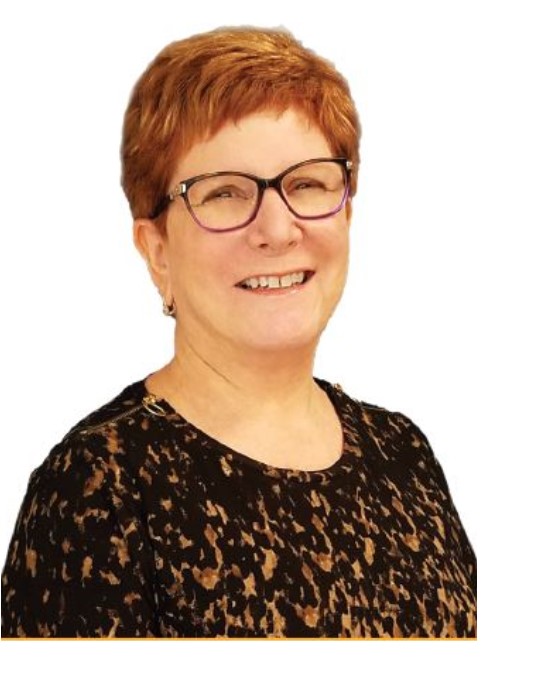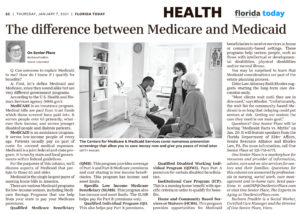
 Barbara Fradkin – Special to FLORIDA TODAY
Barbara Fradkin – Special to FLORIDA TODAY
Reader Question: Can someone to explain Medicaid to me? How do I know if I qualify for benefits?
Answer: First, let’s define Medicaid and Medicare, since they sound alike but are very different government programs.
 According to the U.S. Health and Human Services agency (HHS.gov):
According to the U.S. Health and Human Services agency (HHS.gov):
MediCARE is an insurance program. Medical bills are paid from trust funds which those covered have paid into. It serves people over 65 primarily, whatever their income; and serves younger disabled people and dialysis patients.
MediCAID is an assistance program. It serves low-income people of every age. Patients usually pay no part of costs for covered medical expenses. Medicaid is a joint federal and state program. It is run by state and local governments within federal guidelines.
For the purposes of this column, we’ll discuss aspects of Medicaid that pertain to those 65 and older.
Medicaid is the single largest payer of nursing home bills in America.
There are various Medicaid programs for low-income seniors, including Medicare Savings Programs that use help from your state to pay your Medicare premiums.
Qualified Medicare Beneficiary (QMB). This program provides coverage of Part A and Part B Medicare premiums and cost sharing to low income beneficiaries. This program has income and asset limits.
Specific Low Income Medicare Beneficiary (SLMB). This program also has income and asset limits. The SLMB helps pay for Part B premiums only.
Qualified Individual Program (QI). This also helps pay Part B premiums.
Qualified Disabled Working Individual Program (QDWI). Pays Part A premium for certain disabled beneficiaries.
Institutional Care Program (ICP). This is a nursing home benefit with specific criteria in order to qualify for benefits.
Home and Community Based Services or Waivers (HCBS). This program provides opportunities for Medicaid beneficiaries to receive services in home or community-based settings. These programs help various people, such as those with intellectual or developmental disabilities, physical disabilities and/or mental illness.
You may be surprised to learn that Medicaid considerations are part of the estate planning process.
Elder Law Attorney Ruth Rhodes suggests starting the long-term care discussion early.
“Most clients wait until they are in dire need,” says Rhodes. “Unfortunately, the wait list for community-based Medicaid is so long that delaying could put seniors at risk. Getting our seniors the care they need is our main goal.”
Questions? One Senior Place Brevard/Space Coast will be hosting “Medicaid: Facts vs. Myths” on Jan. 20. It will feature speakers from the Florida Department of Elder Affairs, Senior Resource Alliance and Rhodes Law, PA. For more information, call One Senior Place in Viera at 321-751-6771.
One Senior Place is a marketplace for resources and provider of information, advice, care and on-site services for seniors and their families. Questions for this column are answered by professionals in nursing, social work, care management and in-home care. To submit a question, send an email to askOSP@OneSeniorPlace.com or visit One Senior Place, The Experts in Aging at OneSeniorPlace.com.
Barbara Fradkin is a Social Worker, Certified Care Manager and the Director for One Senior Place, Viera.


